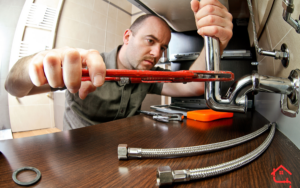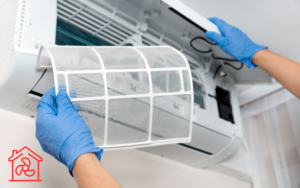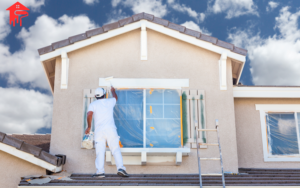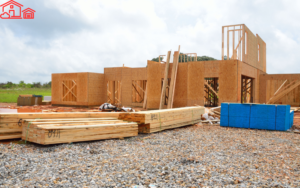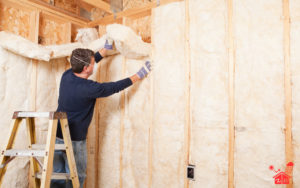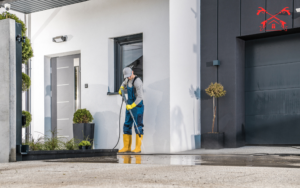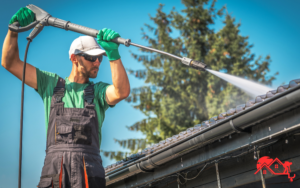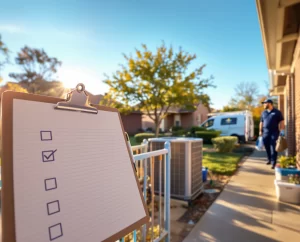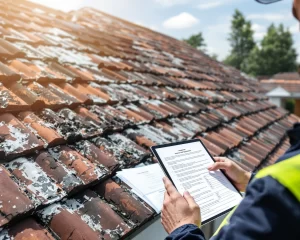How to Prepare My Home for New Flooring
Preparing my home for new flooring can seem daunting, but with the right steps, I can create a smooth and stress-free installation experience. In this guide, I’ll walk through the essential steps to ensure everything is ready before the flooring installation.
Assessing My Current Flooring
Before laying down new flooring, I need to evaluate the existing flooring for issues that could affect installation.
Looking for Damage
I should carefully inspect my current flooring for any signs of damage, such as rotting wood or water damage that may need attention before the new flooring goes down.
- Cracks in the existing floor
- Loose or warped tiles
- Signs of mold or mildew
Making Repairs
If I find any damage, it’s crucial that I address these issues before installation to avoid further complications later on.
- Replace damaged boards
- Fix leak issues
Clearing the Area
To facilitate a smooth installation, I need to clear out the area where the new flooring will be installed.
Removing Furniture
I must move all furniture, rugs, and decorations out of the way. This not only provides space for the installation team but also protects my belongings.
- Remove small items first
- Take apart larger furniture
Finding Storage Options
If my home lacks enough storage space, I might need to consider renting a storage unit temporarily or asking a friend for help.
Preparing My Subfloor
Whether it’s concrete, wood, or tile, ensuring my subfloor is clean and ready is key to a successful installation.
Cleaning the Subfloor
I should make sure that the subfloor is free of debris and dust. A clean surface helps with adhesion and installation quality.
- Sweep and vacuum thoroughly
- Wipe down surfaces if necessary
Leveling the Surface
If my subfloor isn’t level, it’s important to address this as well. Many flooring types require a perfectly flat surface.
- Use self-leveling compounds if needed
- Check for high and low spots
Choosing the Right Flooring
Selecting the appropriate flooring material that suits my lifestyle is essential for durability and aesthetics.
Considering Lifestyle Needs
I need to think about how my lifestyle might impact my flooring choice. For instance, if I have pets or small children, I might opt for more durable materials.
- Carpet vs. hardwood
- Luxury vinyl for moisture-prone areas
Aesthetic Appeal
It’s also important to choose colors and textures that match my home's existing decor. Do I want light, bright spaces or a cozy, warm feel?
Timing the Installation
Aligning the installation with my schedule is crucial to minimize disruption.
Planning for Installation Day
I should set the installation date for a time when I can be home to supervise. This is particularly important to address any questions or changes that may arise during the process.
- Choose a weekday or weekend when I'm free
- Arrange for minimal distractions
DIY vs. Professional Services
Deciding whether to tackle this project myself or hire professionals can greatly impact the outcome.
Weighing the Risks of DIY
While I might want to save money, I need to consider my skill level and the complexities involved in flooring installation.
- Potential for mistakes
- Longer time commitment
Benefits of Hiring Professionals
Hiring experienced installers provides peace of mind, as they usually complete the job faster and ensure a high level of quality.
- Warranty options on installation
- Access to professional tools
Testimonials
“I was amazed at how smooth the entire process was! They handled everything professionally and the new flooring looks incredible!” — Sarah L., Philadelphia, PA
“The team was quick, clean, and very respectful of my home. I couldn't be happier with my new floors!” — James R., Philadelphia, PA
“I was nervous about the whole project, but they guided me every step of the way. Highly recommend their service!” — Emily T., Philadelphia, PA
Did You Know?
Did you know that installing new flooring can increase the value of my home by up to 10%?
TL;DR Summary
- Assess my current flooring for any damages.
- Clear out the installation area to ensure easy access.
- Prepare my subfloor by cleaning and leveling as necessary.
- Choose flooring that fits my lifestyle and aesthetic preferences.
- Weigh the benefits of hiring professionals against DIY.
FAQs
1. How long does it usually take to install new flooring?
Typically, flooring installation can take anywhere from a few hours to several days, depending on the size of the area and the type of flooring chosen. Professional services can expedite this process significantly.
2. Can I install new flooring over my existing floors?
In some cases, I can install new flooring over my existing floors, but this depends on the type of flooring and its condition. A professional can assess my current floors to determine the best approach.
3. What’s the best flooring option for high-traffic areas?
For high-traffic areas, I should consider durable options like luxury vinyl, tile, or engineered hardwood, all of which are designed to withstand wear and tear while maintaining their appearance.
4. Will I need to acclimate my new flooring before installation?
Yes, acclimating my new flooring material can help prevent issues with expansion or contraction after installation. It’s typically recommended to let the materials sit in the installation area for at least 48 hours.
5. What should I do if I have concerns after installation?
If I notice any issues after installation, I should contact the flooring company promptly. Most reputable services offer warranties and customer support to address concerns effectively.






























